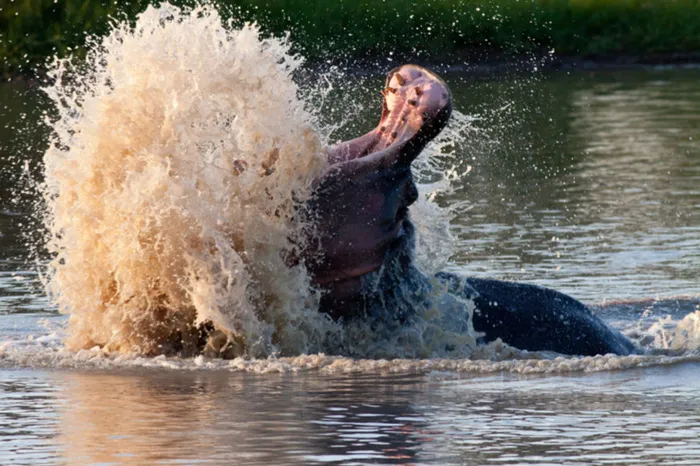Kruger Park culling hippos

File picture: Jochen van de Perre File picture: Jochen van de Perre
The Kruger National Park has started culling hippos and its buffalo will be next. Although the park, which is one of the largest game reserves in Africa, received rain in March, there is not enough food for the animals.
William Mabasa, spokesman for South African National Parks, said that 59 hippos had been culled and another 100 were in the firing line for later this year as well as 200 buffalo.
“The cull is not because of lack of water, we still have plenty of water after the rain we received in March, the problem is food,” Mabasa said.
He said many areas of the park, especially the central areas from Skukuza to Olifants River, were just barren land with no grass.
There are some 8,000 hippos in the park and around 300 had already died because of the drought.
Mabasa said the meat from the culled animals was currently being sold to staff.
“But we are in the process of getting our abattoir registered so that we can supply hippo meat to needy NGOs around the park.”
Kruger, which is already waging war on rhino and elephant poachers, last month lost a pack of African wild dogs, known as the Lower Sabie pack, to Canine distemper.
The disease commonly affects domestic dogs and can also spill over to the wildlife such as the African wild dogs, hyenas, lions and jackals.
“The exact source of the particular virus which affected this pack of wild dogs is not certain, but could have been due to contact with a feral dog or one of the other wildlife species infected by the disease,” Mabasa said.
Meanwhile in the Western Cape, drought conditions remain dire for many farmers, some of whom are selling off entire herds.
Carl Opperman, chief executive of Agri Western Cape, said that while there were signs that El Niño was weakening, they could still see its effect in the late rains and warm temperatures in the current primary production period of winter grains and pastures.
He was concerned whether there would be enough water for people and animals for this and next season, and enough feed to sustain small and commercial livestock producers during winter.
Opperman said many cattle and sheep producers in the West Coast district had sold their herds while crops like canola, wheat and oats were dying.
Other areas still battling from lack of rain included winter grain producers in the Swartland and the Southern Cape, while producers in the Central Karoo were having to buy in feed for their cattle.
MEC of Local Government, Environmental Affairs and Development Planning Anton Bredell said while most areas had sufficient water for the foreseeable future, there was increased concern regarding the upcoming summer season.
“With dam levels not rising adequately and lower than expected winter rains, we remain concerned about the water situation. The disaster management team is monitoring the situation.”
Bredell said there was significant groundwater in storagewhich could be tapped into for emergency supplies.